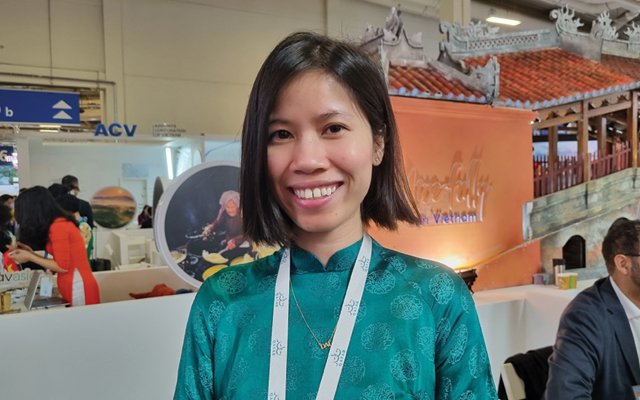- Persistently high airfares, which are not expected to ease, are eating into travel budgets
- Travellers looking for savings by joining small group tours, downgrading accommodation
- Heightened price watch does not come at the expense of destination experiences

Having quenched their thirst for travel in 2022 and exhuasted previously unused travel budgets, travellers are now scrutinising their travel plans and spend for 2023.
A recent Skyscanner travel and tourism outlook report found that while global travellers plan to spend on average 31 per cent more on travel in 2023 compared to 2022, they are also looking to make their money go further this year as the rising cost of living impacts trip decisions.
When thinking about where they would go and how they would spend during their trip, 36 per cent of respondents would pick a destination where their currency goes further, 32 per cent would seek savings from hotel accommodation, and 32 per cent would cut general expenditure.
Travel and tourism sellers told TTG Asia that since airfares – which have continued to trend high despite improving capacity – are an unavoidable travel expense, adjustments can only be made to land components to help travellers afford holidays this year.
Chunky fares
While industry watchers have said pricey airfares would ease with the return of usual flight routes and capacity, airline representatives now say airfares are not slated to decrease any time soon due to surging fuel surcharges and taxes.
Ngai Hoang, deputy director of Vietnam-based Vietravel, which operates Vietravel Airlines, said despite a “boom” in demand since the end of the pandemic, with the airline operating at 80 to 85 per cent capacity, airfares will remain high.
“I think fares will continue to increase,” he said. “This is due to high fuel surcharges, which are out of our control.”
Echoing Ngai, Marion Karsten, key account executive at Thai Airways, said: “Fuel surcharges remain very high, and this is an issue all airlines currently face.”
Karsten noted that fuel surcharges combined with taxes currently sit at between US$400 and US$500.
Despite Thai Airways’ capacity returning to pre-Covid levels at almost 100 per cent, Karsten said until fuel prices drop, airfares will continue to rise. Yet, dips in fuel prices will unlikely move airfares much, as “these fuel surcharges are always increasing and even if fuel gets cheaper”, she remarked.
Karsten believes that a slight reprieve may come as overall flight capacity into Asia increases, driven by Middle Eastern carriers such as Qatar Airways and Emirates adding more services to the region.
Le Thi Thu Thuong, deputy general manager of Hanoi-headquartered IndochinaTravelland, told TTG Asia that airfares are a “big problem” for travellers, particularly for those travelling from far away to Asia and to destinations without many direct flight access.
“Airfares can make up about 30 per cent of a traveller’s total budget,” said Le.
Spreading budget out
To maximise available holiday budget, travellers are spending smarter.
Dai Nguyen, marketing manager with boutique travel agency Saffron Travel, which has operations in Vietnam, Laos, Cambodia and Myanmar, said travellers who used to favour private tours before are now happy to join others to share the cost of a good escorted programme. As a result, Saffron Travel is doing brisk business with small group tours of no more than 10 travellers.
Similarly, Laurent Granier, co-founder & general manager of Laos Mood Travel, has observed a growing awareness among consumers that travelling in larger groups can attract “substantial savings”.
“People (realise that rates) decrease when the travel party is bigger. So, they talk about their plans to their relatives, friends and colleagues, and sometimes the confirmed party is bigger than the original request,” said Granier.
Granier also sees customers taking only English-speaking guides, which are cheaper than guides leading in other languages.
Similar to Skyscanner’s findings, Le said travellers are turning to more affordable hotel options for savings instead of cutting back on tours and activities.
Indeed, Lufti Pristiawan, director of sales with Courtyard by Marriott Bali Seminyak Resort in Indonesia, said his mid-range hotel has done very well among value-conscious travellers.

To earn amid cost pressures and price scrutiny, sellers say volume and duration are critical.
“We cannot raise the price of tours, neither can we switch experiences for cheaper ones. So, to make sure that the itinerary remains affordable while allowing us and our partners to make money, we have to drive greater volume,” said Le.
IndochinaTravelland has committed to retaining pre-pandemic prices for trade partners who had signed up with them before the Covid-19 disruption and are looking to materialise their trips this year. Doing so has helped to bring in much needed volume. However, Le said maintaining these prices for 2024 programmes would be a tough stretch.
To entice travellers to stay on longer, Courtyard by Marriott Bali Seminyak Resort runs a popular long-stay promotion where a minimum six-night stay gives the guest access to special room rates plus add-ons like complimentary laundry and one-time dinner.
Meaningful adjustments
However, the heightened price watch does not come at the expense of destination experiences, find industry players.
“Value is all about the perception of what your money can get you,” said Granier.
“When travellers are ‘forced’ to spend more on what is perceived as ‘not valuable’, like air tickets, which is an unavoidable travel expense, then they certainly want to make sure that what they do in the destination will be worth it,” he reflected.
DMCs themselves are doing their part to build programmes reflective of the times and current concerns.
Laos Mood Travel has “lightened up on some inclusions” – meals are recommended, not included, for example, unless the dining experience is an essential element of the activity. Such cases would be a Laos cooking class, meals at homestays, and picnics during hikes or treks.
“We also carefully plan itineraries that balance escorted content with a guide and free time”, he shared, adding that bicycles and trains are also used to get around, which adds flavour to the experience.
Granier believes that tours that “go slow” are meaningful and of great value to travellers today. By avoiding tours that “check-in and check-out every day just so people can see as much as possible of the country”, travellers get a more immersive experience of the destination.
At Saffron Travel, the team prioritises business with close partners who are happy to extend special rates as well as small-and-medium-sized local suppliers that “tend to charge slightly lower fees than the big boys”, revealed Nguyen.
Supporting small local business owners also allows Saffron Travel to feature homegrown ideas and operators while channelling earnings into the pockets of local people – something travellers today value.
Dominic Ong, general manager, Tour East Singapore emphasised that value-focused travellers are not simply looking for cheap deals. To present Singapore as a destination worth travellers’ time and money, Ong’s company is pushing for longer stays in the same hotel, which will grant travellers better hotel offers, and provide at least two unique activities per itinerary that offer a deeper look into the country.
Singapore Tourism Board’s new SingapoRewards programme, launched globally on March 7 at ITB Berlin 2023, is a timely initiative that answers to the value scrutiny. The programme provides international visitors with a chance to try one of nearly 40 new or undiscovered experiences for free.
The experiences are curated across various precincts and categories – Novelty and excitement; Food and dining; Sustainability; and Wellness.
Examples of what international visitors can expect include discovering the origins of Singapore Dry Gin at the Brass Lion Distillery Tour, and taking a behind-the-scenes tour of Changi Airport and Jewel.
The range of featured experiences will expand, as STB evaluates and approves more programmes for SingapoRewards, STB CEO Keith Tan told TTG Asia.
STB will fund the programme and reimburse experience operators for their participation.
Tan expects these experiences to offer new perspectives of Singapore, even to returning visitors who are familiar with the city-state.
To qualify for SingapoRewards, the visitor must be a short-term visitor arriving by flight and redeeming for the first time. Redemption is a fuss-free process via the programme’s microsite or VisitSingapore app. – Additional reporting by Marissa Carruthers


